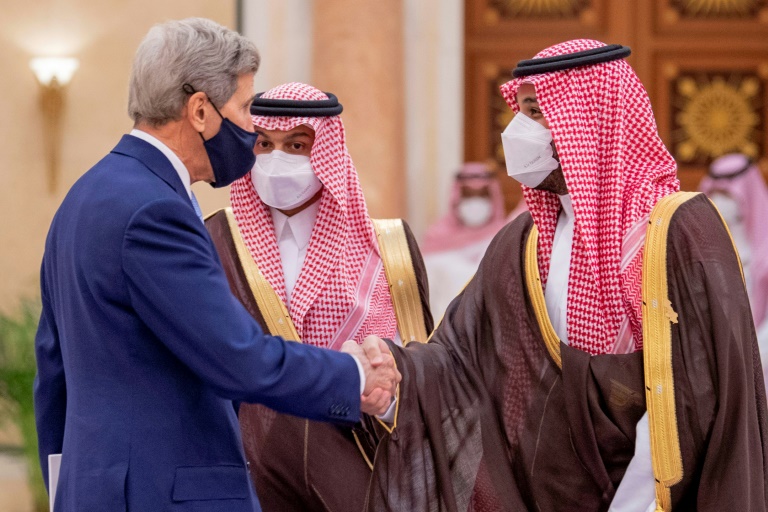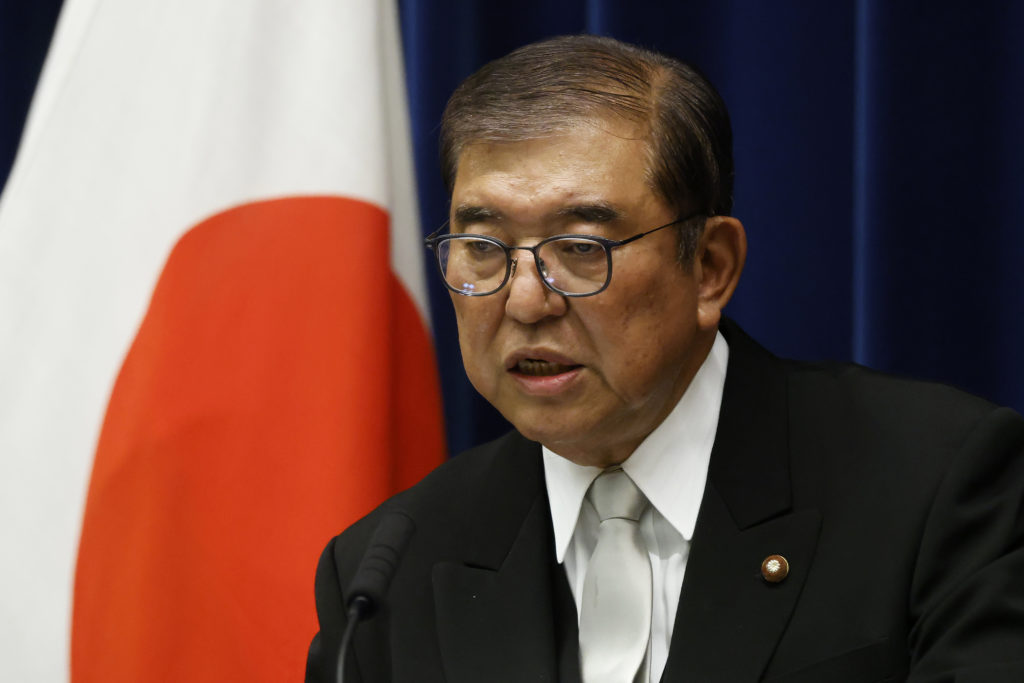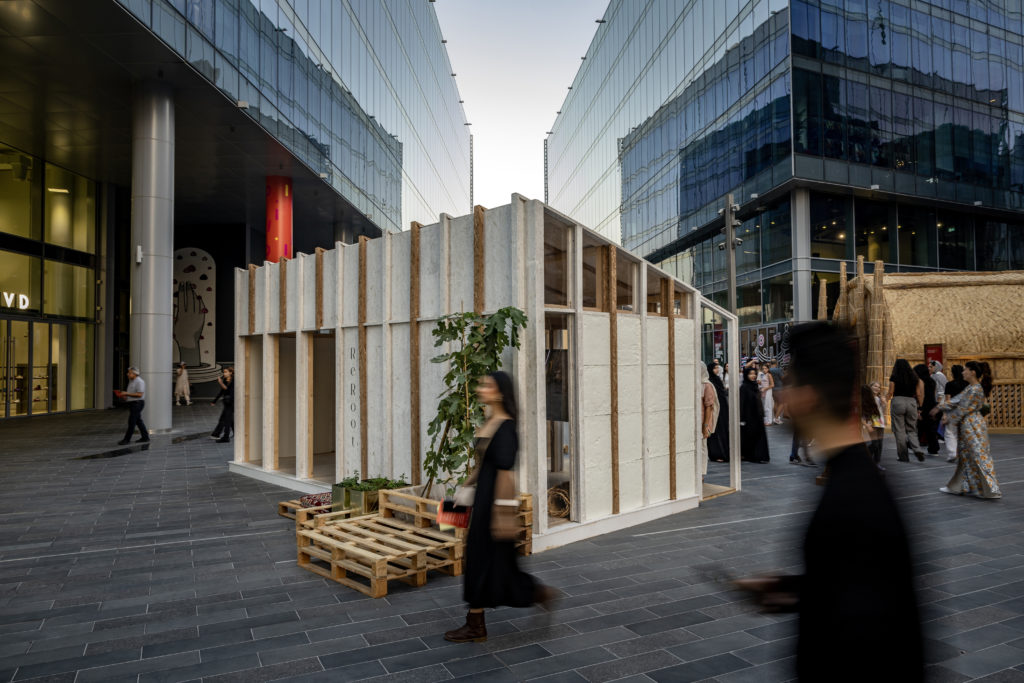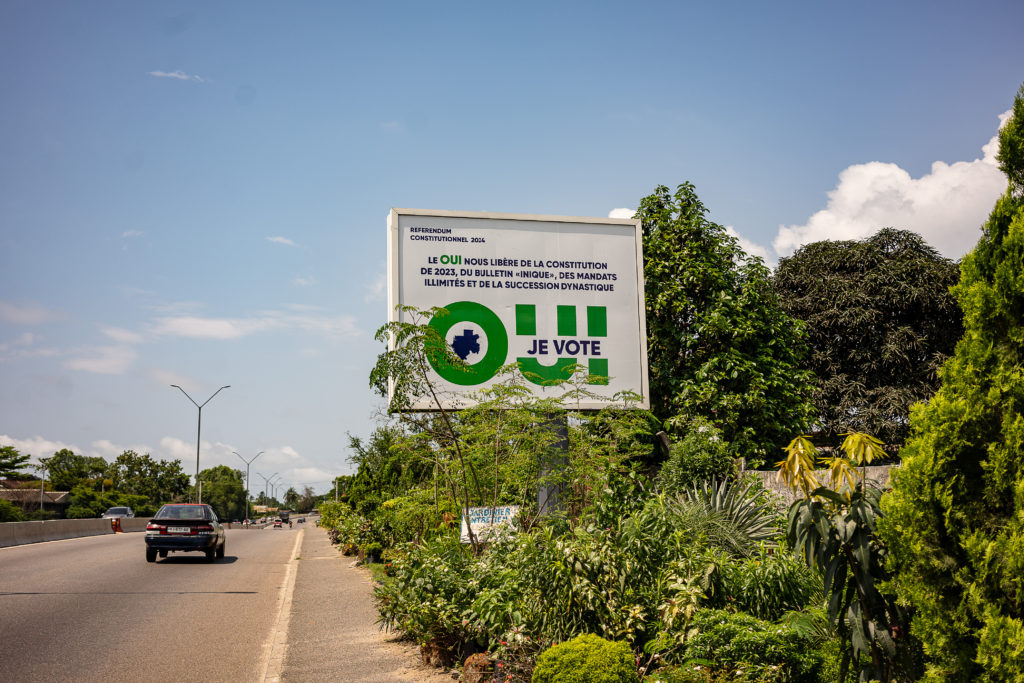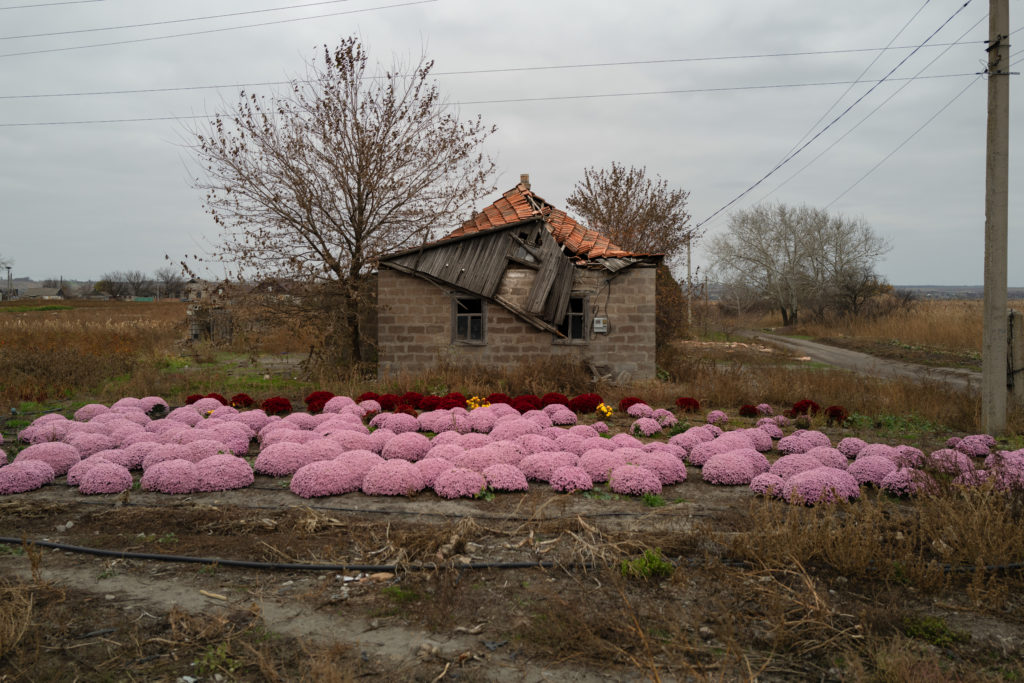Saudi Arabia’s de facto ruler pledged more than $1 billion for new global environmental initiatives on Monday, taking further steps to bolster the green credentials of the world’s top oil exporter.
Two days after targeting carbon neutrality by 2060, and ahead of next week’s COP26 global climate change summit, Crown Prince Mohammed bin Salman announced two initiatives to fund the “circular carbon economy” and provide “clean fuel” to help feed 750 million people worldwide.
The two initiatives were targeted to cost 39 billion riyals ($10.4 billion). Saudi Arabia will contribute 15 percent and seek the remainder from regional funds and other countries, Prince Mohammed said.
“Today we are initiating a green era for the area, believing that these changes are not only for the environment but also for the economy and security,” he told heads of state and other senior officials at the Middle East Green Initiative Summit in Riyadh.
“We will work on establishing an investment fund in solutions with circular carbon technology in the region and a global initiative which will supply solutions for clean fuel to provide food for more than 750 million people globally.”
The “circular carbon economy” is a concept promoted by the Saudis which aims to remove and store carbon for reuse in other products.
– OPEC’s largest producer –
The summit, which also featured the leaders of Qatar and Pakistan, and US climate envoy John Kerry, follows Saturday’s Saudi Green Initiative where Prince Mohammed announced a target of net zero carbon emissions by 2060.
Environmental group Greenpeace questioned the seriousness of that target, which comes after state oil firm Saudi Aramco said it planned to raise crude production capacity to 13 million barrels a day by 2027.
The watchdog also accused Saudi Arabia, one of the world’s biggest polluters, of trying to divert criticism at the COP26 summit in Glasgow.
COP26 aims to set the world on a path to net zero by mid-century.
On Saturday, Saudi Arabia also said it would join a global effort to cut emissions of methane — another planet-warming gas — by 30 percent by 2030, while Aramco committed to being a carbon net zero enterprise by 2050.
The United Nations says more than 130 countries have set or are considering a target of reducing greenhouse gas emissions to net zero by mid-century, an objective it says is “imperative” to safeguard a liveable climate.
Saudi Arabia, the largest crude producer in the Organization of the Petroleum Exporting Countries, also draws heavily on oil and natural gas to meet its growing power demands and desalinate its water.
The desert kingdom, population 34 million, is estimated to belch about 600 million tonnes of carbon dioxide per year — more than France (population 67 million) and slightly less than Germany (population 83 million).
Carbon neutrality is a balance between emitting carbon and absorbing carbon from the atmosphere.
According to the United Nations, the circular economy is essential to achieving the world’s climate goals. It involves avoiding excessive consumption, waste and use of fossil fuels by leasing, reusing, repairing and recycling existing materials and products.

